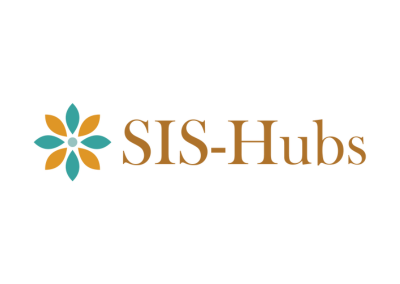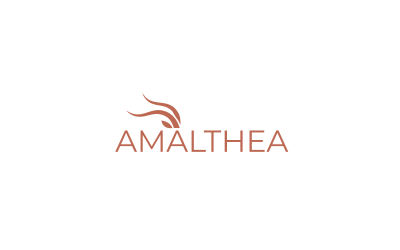To strengthen community-based, intersectional and coordinated responses to GBV and THB by ensuring women and girls’ local participation, enhancing professional capacities, fostering inclusive, trauma-informed prevention and protection systems.
Context
Preventing, recognising, reporting, and combating gender-based violence (GBV) and sexual exploitation within local communities is essential for creating more peaceful and inclusive societies, as highlighted by Sustainable Development Goal 16. Women and girls on the move are particularly vulnerable to GBV due to structural gender inequalities, precarious socio-economic conditions, and limited access to protective resources. Community-based approaches that connect GBV prevention services with networks of women can facilitate early identification, timely support, and safer pathways to recovery. Training professionals across various sectors, such as health, social services, education, legal services, and frontline workers to detect GBV indicators during their daily interactions can enhance both prevention and protection efforts. In this context, as a result of GBV trafficking in human beings (THB) also remains a significant issue within the EU. In 2022, over 10,000 confirmed victims were recorded, with the majority being women and girls subjected to sexual exploitation. The actual number of victims is likely higher due to the lack of standardised victim identification processes, despite guidelines from IOM and UNHCR. THB geared towards sexual exploitation is deeply rooted in gender disparities and disproportionately affects foreign women, who often experience severe GBV. SIS-HUBS aims to strengthen community-based, intersectional, and coordinated responses to gender-based violence and trafficking in human beings, by empowering affected communities, enhancing the capacity of professionals, improving service accessibility and coordination, and fostering inclusive, trauma-informed environments that enable prevention, early identification, protection, and long-term social inclusion.
Objectives
- To strengthen the capacity of multisectorial professionals working directly with potential women/girls VoTs and VoVs, incorporating a multicultural and intersectional approach to address sexual exploitation and THB cases more effectively and in a coordinated manner.
- To empower TCNs women and girls VoTs by equipping them to fight all forms of GBV, incl. trafficking, through self-driven prevention actions, access to support services, education and awareness, and community mentorship.
- To establish local hubs to improve women and girls’ accessibility to support services and resources, serving as essential links, facilitating multisectoral cooperation, preventing re-trafficking & revictimisation and ultimately fostering a safer environment.
- To create a women’s supportive network facilitating mutual counselling and building healthy relationships with other peers, while streamlining the (re)integration process within communities.
- To increase awareness about the risk of THB for sexual exploitation and GBV among the communities, targeting professionals working in high-risk sectors and vulnerable groups to prevent, mitigate risks and reduce demand.
Activities
- Mapping of services in healthcare, education, legal support and social services
- Establishing multidisciplinary teams and training them using an intersectional approach on topics related to supporting the access of women and girls at risk of THB/GBV to multiple services related healthcare, education, legal and social services
- Co-development of the HolistiCare comprehensive curriculum for professionals
- Hosting info-sessions for professionals to present the curriculum
- Offering training programmes for women to take on a community mentor role, covering GBV, THB, rights, and mentorship methodologies
- Establishing community hubs as cooperation spaces between women and service providers
- Implementing mentorship programmes for women and girls
- Running awareness – raising campaigns
Resources
- Local spidergram maps showing local services
- HolistiCare comprehensive curriculum for professionals on healthcare, education, legal and social services
- SIS-essions: introductory training sessions for implementing community-led actions against THB sexual exploitation and GBV
- The SIS-Hub Model: 8-month action plan for running SIS-Hubs
- SIS-Hubs Impact assessment analysing the activities carried out, identifying successful outcomes, lessons learned and areas of improvement in each partner country
- Sustainability plan outlining objectives and activities to ensure the continuity of the services
- SISTERS’tories documentary showcasing the project experience
- Manifesto: Policy recommendations tailored to each local context for the replication of the Hubs
Impact
- At least 25 multidisciplinary team members will enhance their skills through mutual training and exchange activities.
- 250 professionals will be reached through info-sessions, gaining their understanding about the services and coordinated approaches to be used in approaching them.
- Atleast 50 women will be engaged as community referents.
- 250 women and girls increasing their awareness and understanding about their rights and the services available to support them.
- 5 SIS-Hubs established in Italy, Slovenia, Greece, Bulgaria, and Germany.
Partners
- CESIE ETS (Italy)
- CENTRO PENC. ANTROPOLOGIA E PSICOLOGIA GEOCLINICA ONLUS (Italy)
- ZRS KOPER ZNANSTVENO-RAZISKOVALNO SREDISCE KOPER (Slovenia)
- KMOP KENTRO MERIMNAS OIKOGENEIAS KAI PAIDIOU (Greece)
- AAF ANIMUS ASSOCIATION FOUNDATION (Bulgaria)
- SOLWODI DEUTSCHLAND EV (Germany)









